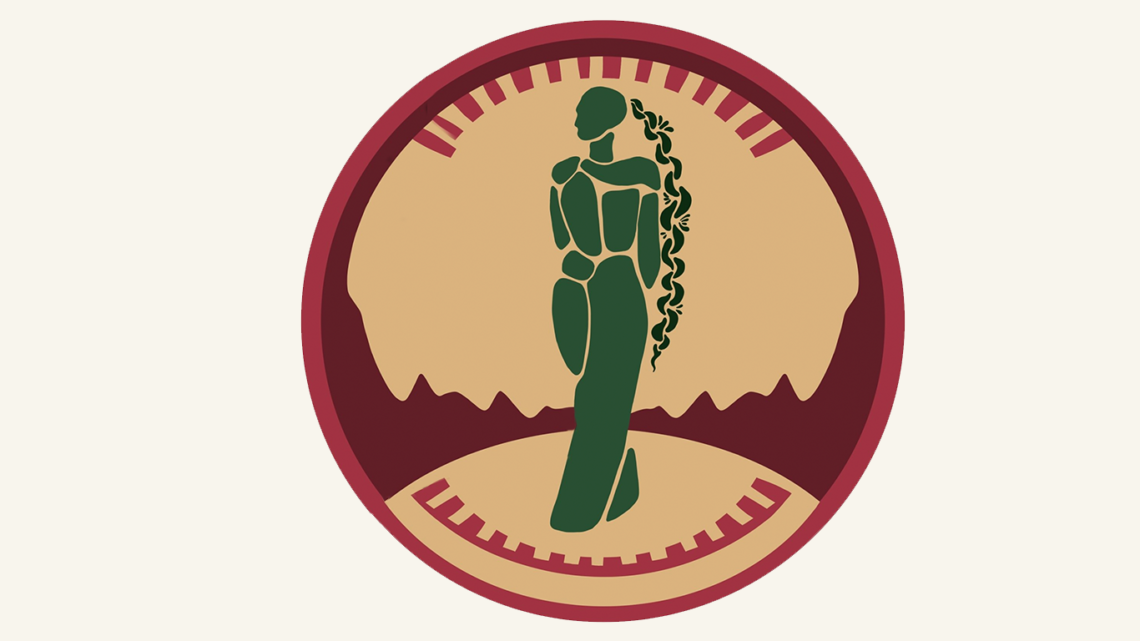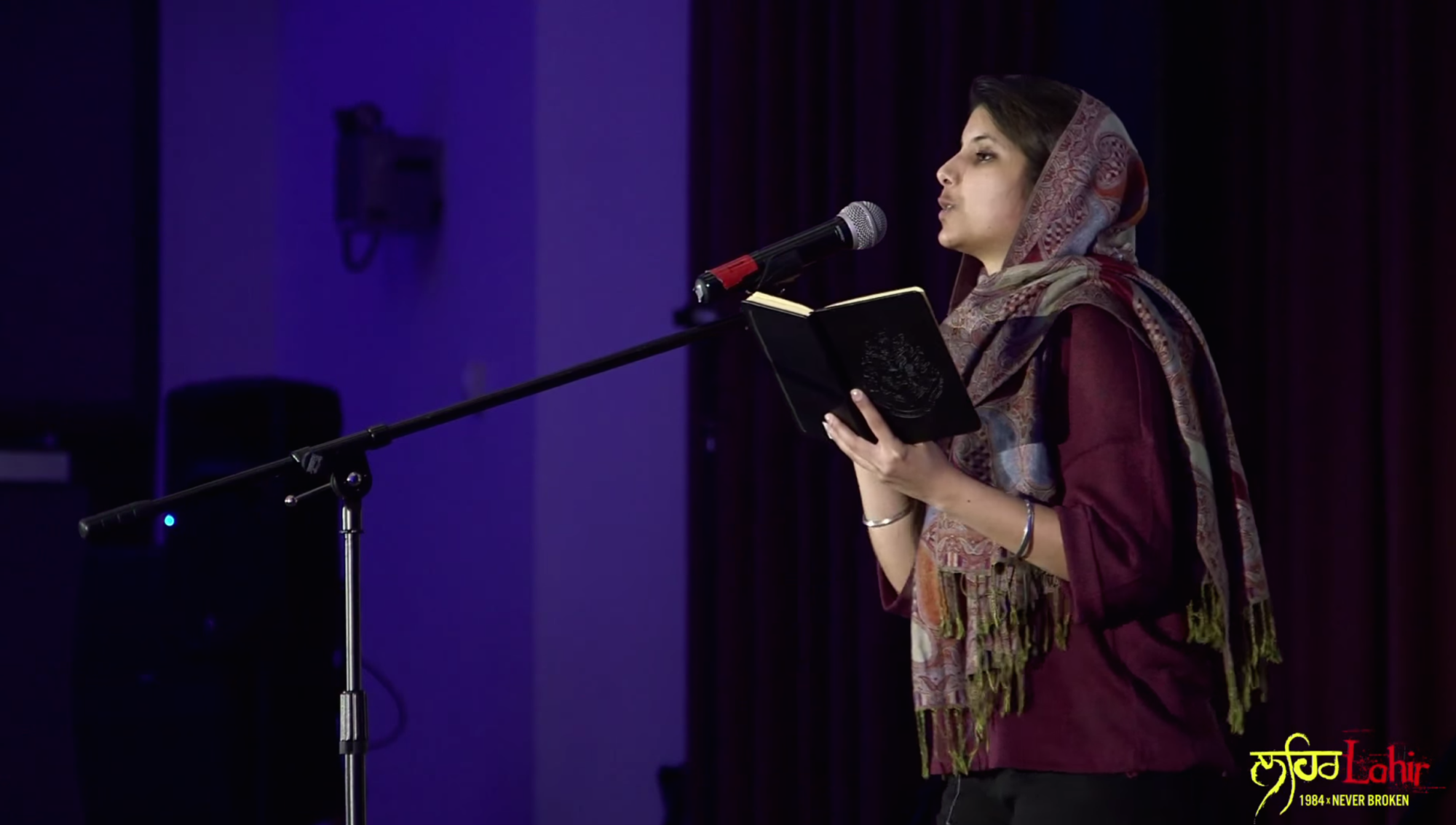Meeta Kaur, editor of Her Name is Kaur: Sikh American Women Write About Love, Courage, and Faith sits down with Kaur Life to talk about her next project, Kaurs Reimagine. Kaurs Reimagine will be a collection of stories submitted by Sikh women and gender queer, non-binary, and gender non-conforming individuals exploring Guru Nanak Ji’s vision for a new world. Meeta Kaur sat down with Kaur Life to talk about her inspiration for this second volume of Sikh stories.
Kaur Life (KL): Tell us about the project in general.
Meeta Kaur (MK): Kaurs Reimagine: Sikh Love Stories Volume 2 wants to give Sikh women and gender queer, non-binary, and gender non-conforming individuals the opportunity to pause, reflect, and express truth-centered narratives that choose a way forward towards their own spiritual liberation. Ideally, everyone in our communities makes their spiritual life central to this effort: co-creating life with Wahe Guru to create a path to peace, bliss, and liberation.
We all have an innate wisdom that guides us to return to our spiritual selves over and over again – a constant mantra, a daily rhythm, an inner beat that signals that return several times a day.
It is a choice to listen.
In listening to this call, this return home, we find our way in the world. Ideally, Guru Nanak Ji’s values are the compass we follow like a North Star living in this world. Acknowledging we all struggle, we all make mistakes, we all have to train to follow Guru Nanak Ji’s compass are also journeys we hope are expressed in these new narratives.
While this spiritual wisdom derived from lived experiences is felt, embodied and integrated into more refined living, leaning on story-telling is one way to begin to explore the depth of our inner-universe.
KL: What’s the goal & hopes with the new anthology?
MK: The goal is for Kaurs to explore their inner spiritual world with depth, compassion, and reflection, and realize the life adventures that unfurl when we submit ourselves to Wahe Guru.
We want to offer the community spiritual narratives that are transformative. The writers will be tasked to locate, trust, and activate their own inner wisdom to lay out a new vision for themselves and share with our communities.
This is very exciting. This is where we see the quest for our highest potential.
KL: Who can submit pieces for consideration?
MK: We are inviting Sikh women and gender queer, non-binary, and gender non-conforming individuals across geographies, generations, and gender identities to submit.
Here are three steps potential writers can take to submit a narrative:
Step 1: Potential writers can review the submission call here: Kaurs Reimagine.
Step 2: If they are inspired to submit, they can review the submission guidelines.
Step 3: The final step is to submit an interest form by June 6, 2021.
The final deadline for submission of a working draft is October 31, 2021.
We are offering community workshops over the summer to support writers in developing their narrative. Writers can opt-in for these gatherings via the interest form, if they wish. Writers can seek the workshops as they see fit and customize their writing process with what works for them.
Submitting a working draft does not guarantee publication. If the writer is willing to develop the draft, in professional collaboration with our editorial team, we are more than happy to support that effort.
All stories will be recognized and honored.
If there are any questions or curiosities, please email kaursreimagine@gmail.com.
KL: What was the reception of Sikh Love Stories Part 1? How will this one be different?
MK: The Her Name Is Kaur: Volume 1 writers wrote tender and articulate stories illustrating their connection to the Divine. They showed great courage in expressing their vulnerabilities as spiritual beings having human experiences ranging from the humorous and playful to the dramatic and traumatic.
The response was positive. Sikh women across the globe and women in sister communities expressed that they found parts of themselves within the narratives. Some stated they felt less alone, less isolated, less critical of themselves and could open up to more generous parts of who they authentically are. This was a heartwarming response.
Kaurs Reimagine takes inspiration and courage Her Name Is Kaur as a stepping stone to a timely, bold, and expansive new call for writers across generations.
The new editorial team has younger Kaurs involved so we work to bridge generational gaps, break down generational stereotypes, and cultivate this sweet spot of creativity. They are hardworking, passionate, and committed. The Her Name Is Kaur: Volume 1 editorial team was also notably passionate and committed.
The Kaurs Reimagine submission call asks Kaurs to express truth centered narratives on Guru Nanak Ji’s path to freedom. The narratives will explore what it looks like to claim and reimagine our own journey towards freedom. Kaurs can be on any point of this journey which is expansive and inclusive, an open-arm approach to the diversity of experiences our community is having through story-telling.
Writers can also capture the struggles they have overcome; those transformative moments that reset life.
We want to get away from a model of perfection or always having to strive and push when it comes to living our lives. This creates unnecessary pressure and undervalues our inner world which is ripe with so much inner-wisdom. At the same time, we must do the work to wake up to ourselves, our actions, our thoughts, our deeds and ensure everything is in alignment.
KL: What’s your personal background?
MK: I grew up in the Central Valley in Northern California as the oldest and the only daughter in my family. Being the oldest and a daughter in some ways meant I was also the “older son”. It took some time to work this out. I also took several trips to India during my summers off from school and that informed my worldview as well.
I was the first child to work my way through the U.S. public school system and that was a true learning experience, but not in the way we look at academics, traditionally. School taught me the hierarchies that exist in society and how I was supposed to fit into this hierarchy dictated by American history and oppressive systems created for Communities of Color.
Growing up, I lived Sikhi through my parents, specifically my mother, and my maternal extended family. I was fortunate to be born into a loving family yet we faced a fair amount of challenges adjusting to this migration journey. As an observer, I noticed so much was communicated without words, without language: the cooked meals, a clean house, clean laundry, endless time to play, friends and family filling and emptying our home, filing into Baba Ji’s room, piling into the living room, piling into the family room for parties, kirtan, Thanksgiving, etc.
And yet, words became necessary to build our individual autonomy in the United States while staying connected to our communities.
Books became the solution to finding these answers. I did not find all of my answers in books, but I found many approaches to language to explain my own worldly experiences. I actively pursued my curiosity with Sikh heritage and history. Our people lived with so much nobility and honor, wanting to do the right thing at every turn. It was inspirational and aspirational.
I learned how important it was for women to have their own voices, strong and rooted voice based on our heritage and history, knowing who we are and where we come from.
My mother influenced my own voice. She was the youngest, the most pampered, the one everyone doted upon. I observed how love shaped my mother’s voice; she is courageous, self-assured, generous, truthful and bold. She fears nothing. At the same time, she faced her own set of challenges with racism and sexism as a family physician in the U.S.
I understood I had to cultivate a strong voice for myself, and my own family, but my mom could only help me so much. She wasn’t raised in the U.S. so she handed me the baton, and I picked up where she left off.
I embraced my own lived experience, relationships, observations, U.S. history, witnessing the treatment of other communities and in the past twenty years our own to understand the systems we occupy. The past couple of years of protests against racial injustice, mismanagement of government authority and power, the #metoo movement, and the persistence of white supremacy illustrate how critical it is to be clear in ourselves about who we are as Sikhs and have our words and actions follow. We are seeing the same rupture of systems in India with the farmers protest and the deadly spread of the coronavirus and the birth of new variants.
As a spiritual people, we are not in the business of power for the sake of power. We are committed to systems rooted in compassion, truth, and justice.
Saying it is one thing.
Living it is another.
Storytelling is one way to explore our own positions in the world and decide how we occupy that position. For me, it has always been a powerful way to see someone else’s truth, listen to their truth, and visualize it playing out in their lives. What can we glean to be better in our own lives?
Stories are a true gift when someone shares their truth-centered narrative with us.
It is an act of courage.
It is an act of generosity.
It is an act of trust.
Storytelling reminds me of social researcher Brene Brown’s interviews with combat veterans.
She found three elements working together on the battlefield — in uncertainty, we can only discover collective courage when we can be vulnerable with each other, take that risk to trust each other. Once you have traveled through the world long enough, this becomes a challenge.
It is hard.
It is tough.
We want to keep the armor on.
And yet, trusting someone else with our tenderness as a human in this uncertain world, and we taking it upon ourselves to honor the truth and tenderness in another is the only true way forward.
It takes courage to do this.
It takes a kind of spiritual reset.
It takes wisdom.
Stories give us a short-cut to honing our skills as open and tender warriors of the Gurus.
KL: How has your relationships with Sikhi and being a Kaur influenced this project and your vision for it?
MK: My mom often says seva starts in one’s own home. By extension, seva also starts in one’s own community. When we can nurture our community members to be the best that they can be, we all benefit from the community leveling up. We become the ideal community Guru Nanak Ji envisioned. I’d like to see Sikh women reach their full potential as I too benefit when I am surrounded by giants who encourage me to do better, be better, live better. We are connected in a myriad of ways and when Kaurs showcase and live the values the Gurus exhibited, we all flourish in our homes, in our communities and in our regions.
When Kaurs can see one another as trusted sources of experiential knowledge and wisdom, sources of support and compassion, as Divine representations of Sikhi, it will signal a start to dismantling destructive systems within ourselves and an embrace towards internal Divine order. We can be kinder to ourselves and one another. We can be respectful towards ourselves and one another.
It is when we can start to build new just social and political systems in the external world leaving no one behind.
I hope this story collection gives our communities permission to have those tougher conversations with respect, to stick with each other when it gets tough, and support one another in our own journeys towards liberation.
We have so much potential as a community. I want to see our community members harnessing this potential for themselves and then encouraging it in others.
We can share this potential through stories.
Featured art by Kiran Kaur.





1 Comment
Dara singh
05/20/2021 at 12:14 pmInsspiring is this divine journey of spiritualism and while its lesser to do with a religion but more to.ine’s connection to self a spirituality through one’s faith nd here your religious aspect attains more importance. Sikhism,as a religion, inculcates fundamental human values in its followers which develops further to compassionate, humanity serving humans unbiased, empathetic nd kind hearted.
Blessed are those who enter this realm of divinity and spirituality.